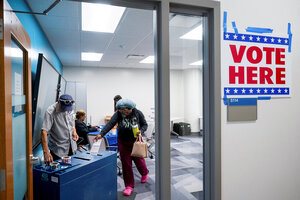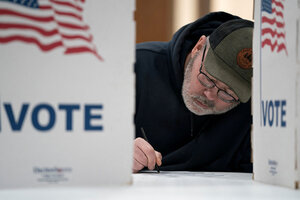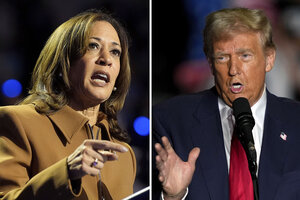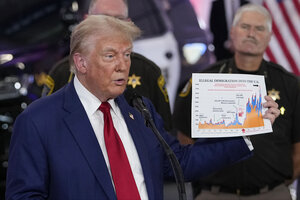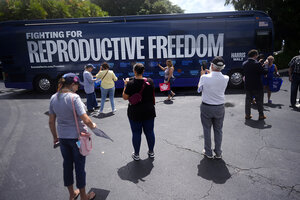Donald Trump voted today as a felon. What are the rules on voting after conviction?
Loading...
Voting rights access has been quietly, steadily expanding for one particular population in recent years: those with felony convictions. Now, that population includes one of the two major party candidates: former President Donald Trump.
For much of American history, a felony conviction came with lifetime disenfranchisement (among other rights taken away and never returned). If you refused to follow society’s laws, the logic went, you should lose the freedoms that come with it. That included voting.
Over the past three decades, however, 26 states and Washington, D.C. have passed laws enabling people with felony convictions to regain the right to vote. In most cases, voting rights are restored automatically once an individual has served their sentence. In others, the person must also complete probation and parole, as well as pay any fines or restitution attached to their sentence.
Why We Wrote This
Although he is a convicted felon, former President Donald Trump was able to cast a vote in Florida. The reason has to do with a growing move by states to expand voting rights to people with felony convictions.
Mr. Trump cast a ballot for himself in Palm Beach today thanks to recent developments in these laws. Per Florida statute, if a voter has a felony conviction from another state, Florida will defer to that state’s laws in determining if the voter can or can’t vote. And in 2021, New York passed a law allowing people with felony convictions to vote as long as they’re not incarcerated at the time of the election.
Mr. Trump, whom a Manhattan jury found guilty on 34 felony counts of falsifying business records earlier this year, is scheduled to be sentenced on Nov. 26. Originally scheduled for early September, the judge in the case postponed his sentencing until after the election.
Overall, since 1997, over 2 million Americans with felony convictions have regained the right to vote, according to the Sentencing Project. These re-enfranchisement laws have been crucial to helping people with felony convictions successfully rejoin society after serving their time, researchers say. In Minnesota, a study found that people with past felony convictions who voted in the 1996 election were only half as likely to be rearrested from 1997 to 2000 as those who didn’t vote. In a 2012 survey of disenfranchised citizens in Florida, almost 4 in 10 “directly connected their inability to vote to their perceived ability to remain law-abiding.”
Skepticism of restoring voting rights for people with felony convictions remains, however.
In Nebraska this year, two Republican officials refused to enforce two state laws – including one passed in 2005 – expanding voting rights for felony convictions. It meant people like Thomas Moore, who served nine years in prison in Florida before moving states, voted in the primary before fearing it may be illegal for him to vote in the general election. The Nebraska Supreme Court ultimately ordered the state officials to enforce the new voting laws, but it was an episode that rankled Dr. Moore, co-owner of a mental health agency in Florida and teacher at a community college in Lincoln, Nebraska.
Voting for the first time after earning his freedom “was extremely inspiring, extremely empowering,” Dr. Moore told the Monitor in July.
“I just felt a feeling of: it’s a new season,” he added, “I can now reintegrate and live by the laws of the land and find success just like everyone else.”










